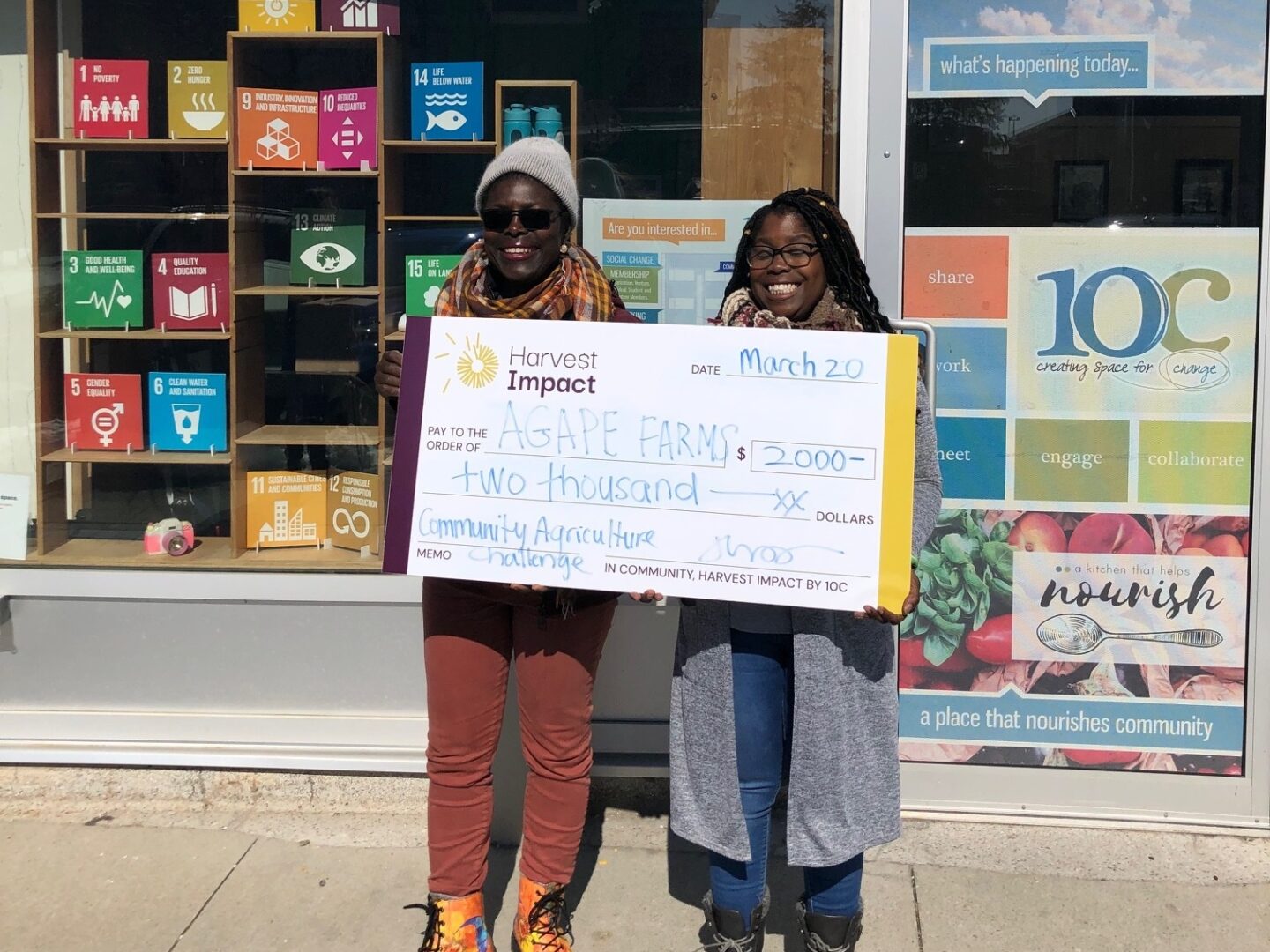Press Release: Ten Guelph-Wellington projects to receive funding to support food growing
Investment in small-scale agriculture will increase local food production
Ten projects in Guelph-Wellington have been awarded a grant of $2,000 each to support better access to food during the upcoming 2023 growing season using circular principles. Our Food Future, in partnership with Harvest Impact by 10C, launched the Guelph-Wellington Community Agriculture Challenge last year urging applicants to consider how local businesses, not-for-profits or individual community members can apply circular principles and community agricultural practices to improve access to nutritious food in Guelph-Wellington.
The chosen projects include shared community garden spaces, opportunities to learn food growing skills, and local and ethnocultural food-related activities and regional events that build community connections.
“These projects demonstrate circular principles and help address food security by providing access to affordable and healthy foods while building community through knowledge sharing and education,” says Ashlee Cooper, manager of Food Equity and Community Resiliency with the City of Guelph’s Smart Cities office.
2023 Community Agriculture Challenge grant winners
Agape Farms
Selling locally grown, organic, ethnocultural food on a sliding scale pricing structure, Agape Farms are working to restore our food system through an anti-racist lens by bringing youth together to address food security and food sovereignty from the ground up.
“This critical funding will be used to purchase plastic and wireframes to create polytunnels on our farm. These will help us grow crops earlier, create summer shade, and extend our growing season for protection from early frost. All ways for us to increase our food production and support better food access locally” explains the team at Agape Farms.
The Art of Soil Collective
This project will use funds to support the creation of a documentary film featuring newcomer families involved in community agriculture, either at their homes or in urban garden spaces, as a method of documenting and sharing growing knowledge and traditions.
Brock Road Community Garden
The Brock Road Community Garden will build a community composter to transform garden waste into soil that will be added to the community garden and pollinator garden plots.
Everdale
This new program hosted by Everdale will include an intergenerational farm kitchen gathering to share stories and prepare traditional dishes made with ingredients from the land, including harvesting, preparing, and eating while sharing knowledge.
Eramosa River Food Forest
In the East Ward Neighbourhood, this project will work to enliven a green space with fruit trees, berry-producing shrubs, herbs, edible perennials and native pollinator plants.
Junction Neighbourhood Group
Building a new compost system to effectively capture neighbourhood garden weeds and end-of-season plants and working to reduce the need for external manure and fertilizers to help gardeners and community members learn more about building healthy soil.
Kortright Presbyterian Church
Using their community growing space, this project will work to increase yields to contribute food to partnering food distribution organizations.
North 44 Academy/Outdoor Preschool
They will create and expand the capacity in their school garden for passive winter production of greens, vegetables (carrots and leeks) and herbs using cold frame and cool house techniques.
Seed Soil Spirit
Building a Kalima Farm seed fund in support of Indigenous, Black, and racialized women. This will support building healthier communities by uplifting the histories, living stories, and relationships of plant medicine, nutrition, and land stewardship from Indigenous, Diasporic, and decolonial perspectives.
St. George’s Park Community Garden
This community garden will use the funds to expand access to local gardening space, with 20 per cent of the garden area dedicated to newcomer families, a large plot for two John Galt Public School classes and 98 square metres (320 square feet) of garden space dedicated to growing food for donation to the North Harvest Market.
Project background
The circular food economy is inspired by the planet’s natural cycles to reimagine and regenerate the systems that feed us by working to eliminate waste, share economic prosperity, and nourish communities. The circular economy is proposed as an alternative to the linear economy where resources are taken, made into products, used, and then sent to landfill. The goal of a circular food economy is instead to keep food resources in use for as long as possible and preserve energy in the system when wastes are produced.
About Our Food Future
In Guelph-Wellington, we are working to build Canada’s first tech-enabled circular food economy that will achieve a 50 per cent increase in access to affordable nutritious food, create 50 new circular economy businesses and collaborations, and a 50 per cent increase in circular economic benefit by unlocking the value of waste.
Our Food Future demonstrates one of the ways the City of Guelph and County of Wellington are contributing to a sustainable, creative and smart local economy that is connected to regional and global markets and supports shared prosperity for everyone. Both Harvest Impact by 10C and Our Food Future are working in Guelph and Wellington County to build a circular food system – a system that values, shares and celebrates a diversity of affordable, nutritious and culturally-relevant foods that support a healthy, resilient community.
Learn more about the Community Agriculture Challenge on Harvest Impact’s website.

